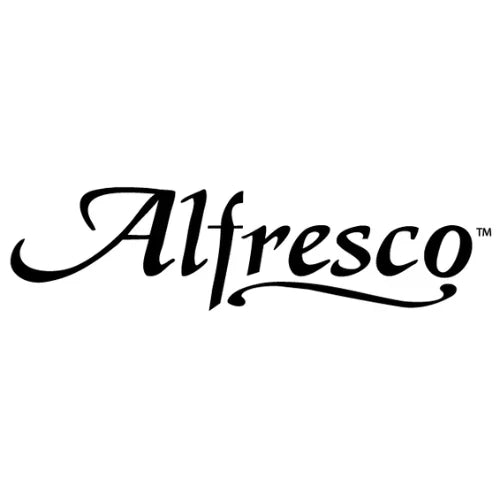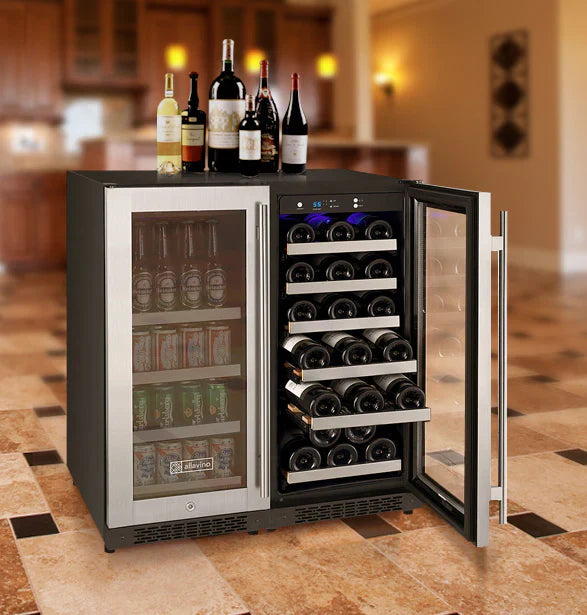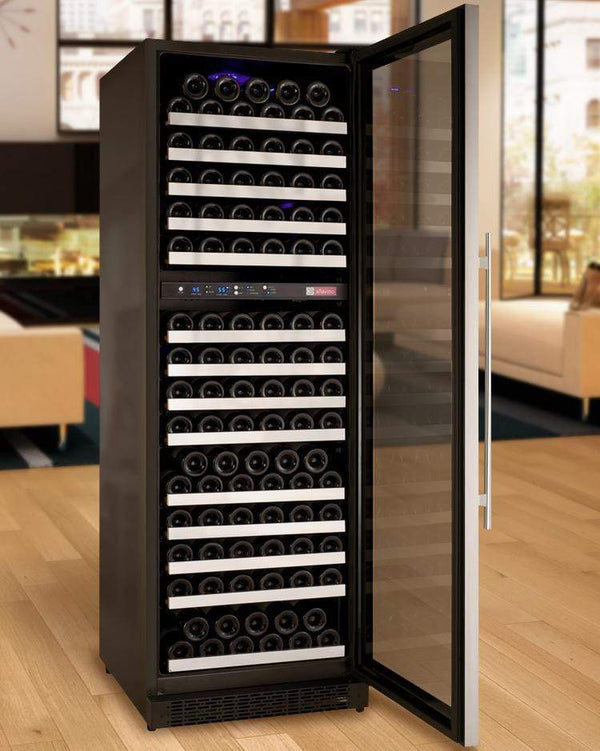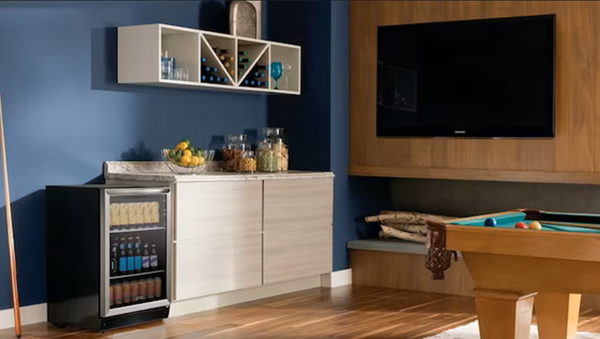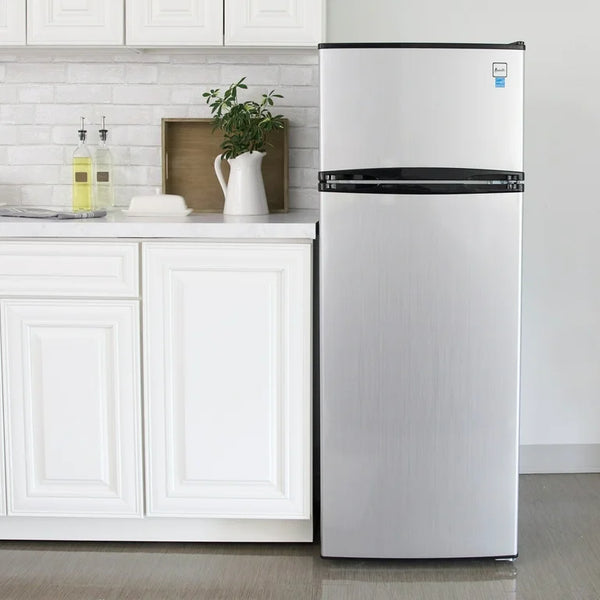Designing a Wine Cellar?
Let’s get it right.
Our specialists review your room layout, insulation, and heat load to recommend the correct cooling system for stable temperature and reliable climate control.
What Is the Difference Between Wine Coolers, Beverage Centers and Refrigerators
Choosing the right appliance for chilling drinks—whether a wine cooler, beverage center, or standard refrigerator—can be overwhelming. While all three keep contents cool, they’re designed with different purposes, features, and technologies. This guide breaks down their distinctions so you can confidently select the best fit for your needs.
For more expert tips, check out our Wine Fridges & Beverage Coolers Buying Guide.
Quick Comparison Table
| Feature | Wine Cooler | Beverage Center/Cooler | Standard Refrigerator |
|---|---|---|---|
| Temperature Range | 45–65°F (7–18°C) | 39–65°F (4–18°C) | 35–42°F (2–6°C) |
| Primary Use | Wine only | All beverages (soda, beer, etc.) | Food & drinks |
| Humidity Control | Yes (optimal for wine) | No (minimal) | No (reduces humidity) |
| Vibration Control | Yes (minimizes vibration) | No | No |
| Shelving | Horizontal, cradles bottles | Flat/wire, adjustable | Multipurpose |
| Door Type | UV-resistant glass | Dual-pane glass (often) | Solid (some glass models) |
| Lighting | LED, display-focused | Always-on LED (often) | Interior, off when closed |
| Best For | Wine collectors, enthusiasts | Entertainers, offices, families | General household |
Understanding the Differences
What Is a Wine Cooler?

A wine cooler is a specialized appliance designed exclusively for storing wine at optimal conditions. Key features include:
- Temperature Precision: Maintains wine at 45–65°F, ideal for serving and aging both reds and whites. Learn more in our Wine Coolers 101.
- Humidity Control: Preserves cork integrity and prevents unwanted odors from entering bottles.
- Vibration Dampening: Reduces movement, protecting wine from premature aging and flavor loss. Discover why vibration and humidity matter.
- Shelving: Horizontal racks cradle bottles, keeping corks moist.
- Design: Upscale finishes, UV-resistant glass doors, and LED lighting for display.
Why It Matters: Wine is sensitive to temperature swings, dryness, and vibration. Proper storage slows aging and preserves flavor, aroma, and character. For more on serving temperatures, see Ideal Temperature for Serving Wine.
Types of Wine Coolers
- Built-in Wine Coolers: Integrated into cabinetry for a seamless look. Find top models in our Best Built-In Wine Fridges.
- Freestanding Wine Coolers: Standalone units for flexible placement.
- Side by Side Wine Coolers: Double doors and multiple zones for large collections.
- Single Zone, Dual Zone, and Multi Zone Wine Coolers: Choose based on how many wine types you store. See our 14 Best Dual Zone Wine Coolers.
Explore standout models in our Best Wine Refrigerator article.
What Is a Beverage Center (Beverage Cooler/Fridge)?

A beverage cooler, also called a beverage center or beverage fridge, is tailored for storing a variety of drinks—soda, beer, water, and sometimes wine. Key features:
- Flexible Temperature Range: 39–65°F, suitable for most canned or bottled drinks.
- Shelving: Flat or wire, adjustable to fit different sizes and shapes.
- Glass Doors & Lighting: Dual-pane glass and always-on LED lighting for easy access and visual appeal.
- Specialized Models: Options include built-in, freestanding, under-counter, outdoor, and drawer-style units.
Note: While beverage centers can chill wine, they lack the humidity and vibration controls needed for long-term wine storage. For more, see Beverage Fridges: Built-In or Freestanding?.
What Is a Standard Refrigerator?

A standard refrigerator is a multipurpose appliance for storing food and drinks. Key features:
- Lower Temperature Range: 35–42°F, ideal for perishables but too cold for wine.
- Humidity Reduction: Designed to keep food dry, which can dry out wine corks.
- General Shelving: Adjustable for various items, but not optimized for bottles.
- Solid Doors: Most have solid doors; some models offer glass doors for display.
In-Depth: Technical Differences That Matter
Temperature: Wine coolers keep wine at a safe, stable range to avoid damaging delicate flavors. Refrigerators are too cold, risking flavor loss; beverage centers are more flexible but may not be precise enough for wine. Learn more in How to Choose the Best Wine Cooler.
Humidity: Dry air in refrigerators and beverage centers can shrink corks, letting odors in and wine out. Wine coolers maintain higher humidity, keeping corks moist and wine fresh.
Vibration: Frequent compressor vibrations in standard fridges and beverage centers disrupt sediment, dulling wine’s taste over time. Wine coolers use dampening technology or thermoelectric cooling for a gentler environment.
Combo Units: Wine & Beverage Cooler Hybrids

Combo coolers feature separate temperature zones for wine and other drinks, offering flexibility for entertaining. However, each zone may have less space than a dedicated appliance, and temperature precision may be lower. Combo units are a smart choice for casual collectors and frequent hosts, but not for serious wine aging.
See more options in our Best Dual Zone Wine Coolers and Allavino Wine Cooler Series Review.
Choosing the Right Appliance: Scenarios
-
Wine Collector or Enthusiast: Choose a wine cooler for precise temperature, humidity, and vibration control.
Best for: Long-term aging, preserving flavor, showcasing bottles. -
Entertainer or Family: A beverage center is ideal for ready-to-drink sodas, beer, water, and occasional wine.
Best for: Parties, offices, home bars, quick access. -
General Household Needs: Stick with a standard refrigerator for food and mixed storage.
Best for: Everyday groceries, leftovers, and drinks. -
Small Spaces or Dorms: Consider a compact beverage fridge or mini fridge for flexibility, but know the limitations for wine storage.
Final Thoughts
The right appliance depends on your needs. For wine lovers, a dedicated wine cooler is essential to protect your collection. For families and entertainers, a beverage center offers convenience and display. For all-purpose use, a standard refrigerator covers the basics. Consider your priorities—storage, display, preservation, or versatility—to make the best choice.
Related Resources:
- Ideal Temperature for Serving Wine
- Best Wine Fridges
- A Guide for Building Your Own Wine Cellar
- Wine Cellar Design Ideas to Display Your Wine
- 10 Best Wine Cellar Cooling Units
- 9 Best Wine Cellar Cooling Units
Still unsure? Explore our expert guides or contact us for personalized recommendations!
📚 Frequently Asked Questions (FAQs)
What is the difference between a wine cooler and a beverage fridge?
What is the difference between a wine chiller and a refrigerator?
Is a wine cooler considered a refrigerator?
Can you use a wine cooler as a beverage fridge?
What is the purpose of a wine cooler?
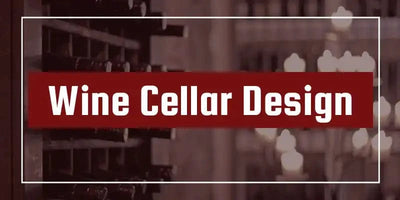
Designing or Upgrading a Wine Cellar?
We got you! Here at Wine Coolers Empire, we will guide you in building your dream wine cellar.



